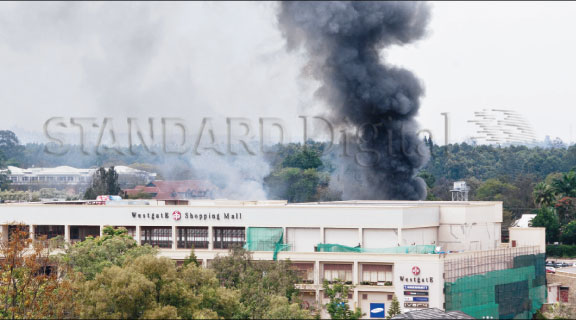×
The Standard e-Paper
Join Thousands Daily
 |
| The Westgate Mall during the attack. [PHOTO: FILE] |
By PROTUS ONYANGO
Was Kenya paying the cost for its Israeli connection? That was the question many were left asking when terrorists killed more than 60 people and injured hundreds at Westgate shopping mall on September 21.